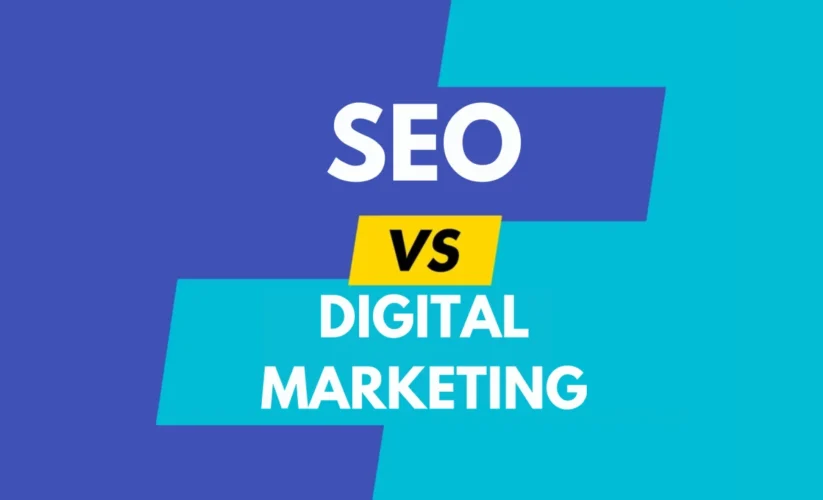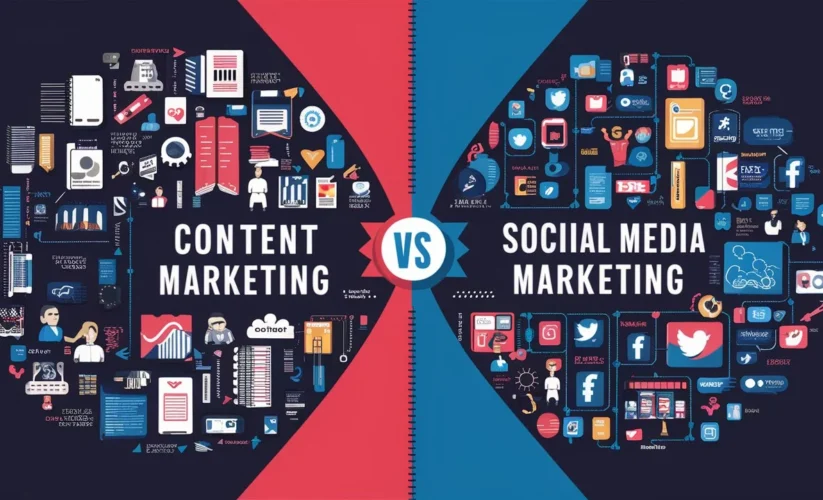
Email Marketing vs SEO: Which Strategy Is Right for You?
Which Strategy is Right for Your Business?
In the ever-changing digital marketing arena, businesses often ask: Email Marketing vs SEO – which is better? Both strategies are powerful, but the right choice depends on factors like business goals, target audience, and budget. In this article, we’ll explore the key differences, benefits, and how to determine which strategy best fits your business.
Understanding Email Marketing and SEO
What is Email Marketing?
Email marketing is a direct form of digital marketing that makes use of email for the promotion of products, services, or content. This consists of personalized messages sent to targeted audiences, usually those who have opted to hear from your brand.

Key Components of Email Marketing:
- Email Lists: A list of recipients who have given consent to receive emails.
- Campaigns: Strategically designed emails tailored to specific goals, such as promotions, newsletters, or product launches.
- Automation: Pre-built personalized mailers on behalf of a particular user or due to certain actions are triggered through apps.
- Analytics: Tools that give success metrics by track open rates, click-through, and conversion.
What is SEO?
Search Engine Optimization- a process applied towards making a particular website appear much higher in a SERPs. This has both on and off-page strategies geared toward increased drive to your website naturally and to improved visibility of that website.
Components in SEO include :
- Keyword Research: Identify the terms your audience is searching for.
- Content Creation: Usefulness and relevance of content, optimized for target keywords.
- Technical SEO: Ensuring that the website is fast, friendly to mobile devices, and easy to use.
- Backlinks: Links obtained from other authoritative websites in order to gain credibility.
Comparative Analysis: Email Marketing vs. SEO
- Cost-Effectiveness
Email Marketing: Relatively inexpensive, this channel requires an investment in a tool like Mailchimp or HubSpot. However, it can have high ROI with a well-targeted campaign to retain existing customers.
SEO: There are usually some upfront costs associated with organic SEO, such as hiring an expert or producing quality content. Results may be slow, but very long-term benefits are derived without recurring costs.
- Audience Engagement
Email Marketing: Best for engaging with an already established audience. Emails are a channel of direct communication, enabling personalization and real-time engagement.
SEO: Emphasizes the organic reach for new audiences through search. It may not be as personal as email, but can capture users in any stage of the buyer’s journey.
- Speed of Results Email Marketing:
Provides instant results. For example, a promotional email can create clicks and conversions in just hours.
SEO: Long-term strategy wherein noticeable results might take months, but benefits are usually longer-lasting.
- Scalability
Email Marketing: Success in scaling an email campaign has to do with the ability of one to expand his or her email list. The larger the subscribership, the better the impact.
SEO: Has inherent scalability whereby improvements in ranking and authority can attract exponential growth in traffic.
- Dependence on Algorithms
Email Marketing: This barely suffers due to algorithms from the outside, while deliverability could possibly be affected by spam filters and sender reputation.
SEO: In this channel, there is major reliance on the algorithms at play in the search engines. And therefore, understanding Google Core Updates, EEAT principles, and many others becomes imperative.
Benefits of Email Marketing
- Personalised communication: Email is tailored as desired by each contact, personal, and relevant.
- Results appear instantly: Deals and special promotions with timing increase traffic immediately or sales.
- Measurable Results: Advanced analytics make tracking of campaign performance a piece of cake.
- Retention and Loyalty: Keep your audience informed and engaged to build long-lasting relationships.
Global Reach
- Cost-effective Long-Term Strategy: After you reach the top ranking, you can drive consistent traffic and won’t have to pay anymore.
- More Credibility: Having your company on the first page of Google will give more authority to your brand.
Global Reach.
- Supports Other Strategies: SEO-optimized content can be repurposed for email marketing and social media campaigns.
Challenges to Consider
Email Marketing Challenges:
- Requires a robust email list.
- Can be perceived as spam if not personalized.
- Open rates and engagement depend heavily on subject lines and timing.
SEO Challenges:
- Results take time and consistent effort.
- Highly competitive in popular niches.
- Requires technical knowledge and continuous adaptation to algorithm changes.

Email Marketing vs SEO: Which Should You Choose?
The choice between email marketing and SEO depends on your specific business goals and audience needs.
Choose Email Marketing If:
- You have an existing customer base or email list.
- You want to nurture relationships and drive immediate conversions.
- Your focus is on retention rather than acquisition.
Choose SEO If:
- Your goal is to attract new customers or expand your reach.
- You’re willing to invest in long-term growth.
- You want to establish authority in your industry.
How to Combine Email Marketing with SEO for the Best of Both Worlds
While email marketing and search engine optimization are two totally different approaches, their combination results in out-of-the-ordinary performance. Here’s how it works:
Leverage SEO for List Building:
- Use SEO-optimized blog posts and landing pages to capture leads.
- Add subscription forms on high-traffic pages.
Repurpose SEO Content for Emails:
- Publish actionable blog content in newsletters.
- Take inspiration from high-performing keywords of SEO campaigns for writing catchy email copy.
Improve SEO by Using Email Insights:
Analyze email-engagement metrics to identify topics your audience loves. Create SEO-friendly content based on those interests. Drive Traffic with Email:
Share new blog posts, product pages, or videos via email to drive more page visits and engagements.
Real-World Example: A Winning Strategy
At Blog DevZev, we’ve seen clients achieve remarkable results by blending email marketing with SEO. For example, a small e-commerce brand used SEO to drive organic traffic and email marketing to convert those visitors into loyal customers. By offering an SEO-optimized freebie (like an eBook) in exchange for email sign-ups, they grew their list by 45% and increased sales by 60% in just six months.
Conclusion:
The Best of Both Worlds
Both email marketing and SEO are must-haves in your digital marketing toolkit. While SEO is great for acquiring new audiences, it’s email marketing that does all the heavy lifting in nurturing and converting them. The key to it all lies in assessing your business goals and marrying these strategies into a seamless, customer-centric experience.
Need a marketing upgrade? Blog DevZev focuses on personalized strategy creation, integrating only the best of email marketing and SEO. It’s time for results that get the job done in business objectives, expertise, experience, and trust.



